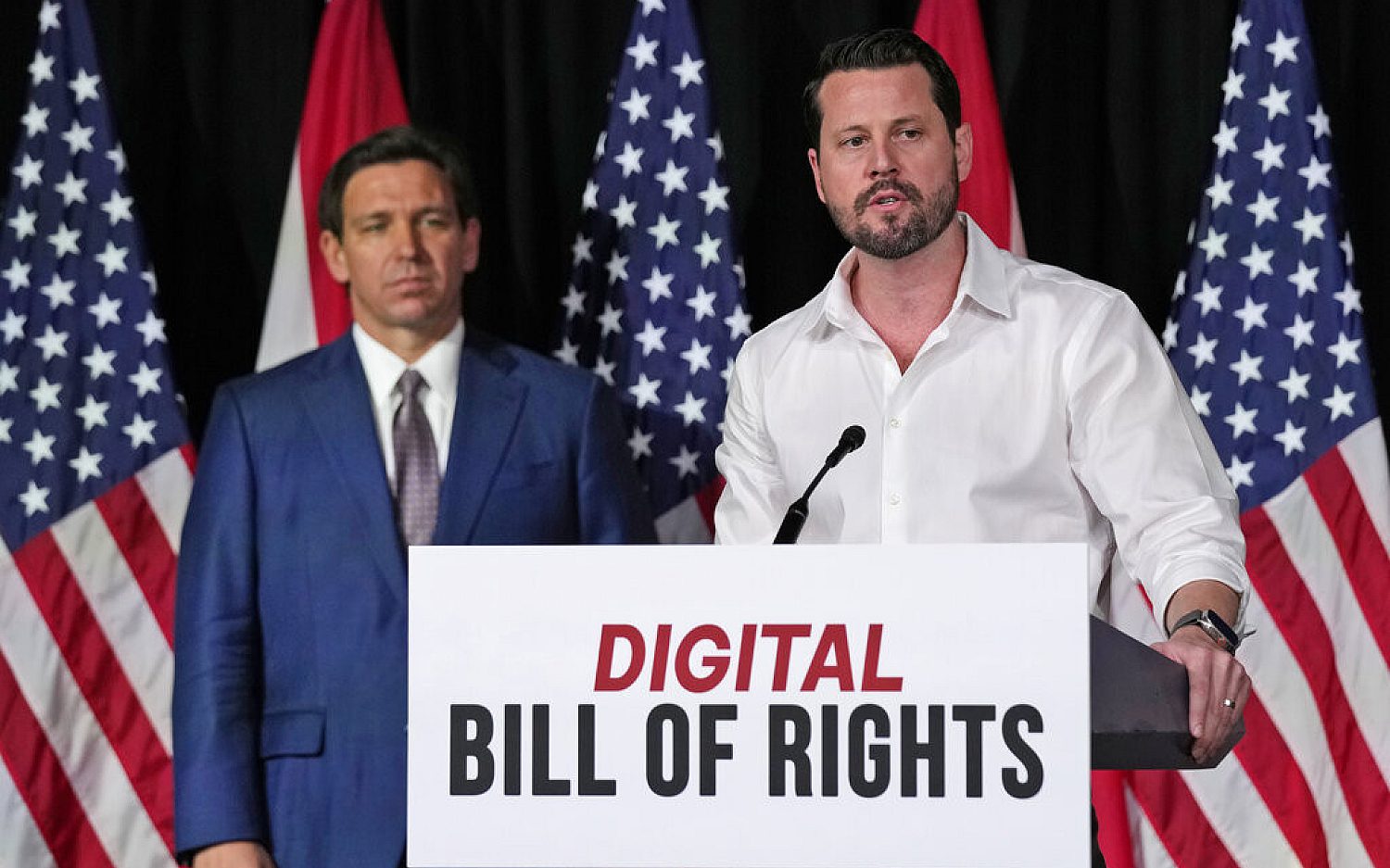Should hotel registries be open to police inspection?
When you check into a hotel or motel, you hand over quite a lot of personal information. That’s understandable: The innkeeper needs to know his guest. And needs to know he’ll get paid.
So you give your credit card number and your driver’s license information, and you get a key to the room.
But does that transaction give the police the key to your personal information? Without probable cause, without a search warrant, or your consent, should the police be able to inspect the information you leave at the front desk?
That’s the question the U.S. Supreme Court argued over earlier this month, another in a line of recent cases that define police powers and personal privacy.
The police say such searches help them fight crime. And they’re not talking about inspecting information at reputable, brand-name establishments. They’re talking about the “no-tell motel,” where people pay cash for short stays—dens of crime frequented by prostitutes and drug dealers. Police say they need quick access to guest registries to catch them.
“And there is a strong need in the case of these hotels, where prostitution and narcotics activity flourish because criminals do not want to identify themselves when they check in, to have regular, unannounced inspections to give the hotels the incentive to comply with the registration law,” argued Department of Justice lawyer Michael Dreeben.
But if criminals don’t sign in to register and identify themselves, what’s the point of police searching those records? The search ordinances make innkeepers guilty of a misdemeanor if they don’t get information upfront. So, if criminals want to stay at one of these hotels, they’ll be forced to give up their personal information.
Innkeepers say guests have an expectation of privacy, making the searches a violation of the Fourth Amendment protection against unreasonable searches.
Although the Constitution forbids unreasonable searches, some kinds of searches are allowed.
For example, restaurant inspectors can make surprise visits for routine compliance inspections. There’s no suspicion of a crime, but the inspector is guarding public health and safety, to make sure nobody gets sick from unsafe food handling.
Another kind of search does probe for crime and evidence, and involves probable cause and search warrants.
So, in which category of search does the motel record inspection fall?
Joshua Rosenkranz, lawyer for the city of Los Angeles, argued it’s like the restaurant inspection. Hotels and motels are “closely regulated.” Case law says when that’s the situation, warrantless inspections are legal.
“And why are they required to record the information? For the deterrent purpose, and the deterrent purpose more specifically is that criminals do not like to register,” Rosenkranz said. “They do not like to record their information. … Frequent, unannounced spot inspections are necessary in order to achieve that deterrent purpose; that if the hotels do not record all the names, and more specifically, they record most names but not the names of the guests that they know are criminals, there’s no way to know, unless you have this frequent, unannounced inspection, that someone is missing.”
But that’s a problem in a free society, attorney Thomas Goldstein argued for the innkeepers.
“The Fourth Amendment protects our sense of tranquility,” he said. “The hotel owners, individuals in other contexts, businesses in other contexts, need to know that beat officers aren’t going to, at their whim, conduct these searches.”
The innkeepers agreed record keeping was a necessity, but some check on police power is needed, they said. And Goldstein got some help from Justice Elena Kagan on this point.
“I had thought that an equally important purpose behind these laws is to, as you said earlier, prevent harassment,” Kagan said to Goldstein. “Prevent, ‘I don't like this hotel owner, I want to drive this hotel out of business, I'm going to be showing up in his lobby every day.’ But that's part of what's going on here, isn't that right?”
Goldstein agreed.
Justice Samuel Alito pointed out the hotel registry is at the front desk, in the lobby, a public area. Rosenkranz grabbed that lead, but Justice Sonia Sotomayor said that meant virtually any business would be susceptible to surprise searches. Rosenkranz argued a non-surprise search wouldn’t be as effective, but Sotomayor wasn’t buying it.
“Well, since when has the Fourth Amendment completely been abandoned to how effective the proof that the police can get at a moment should be?” she asked.
And Kagan underscored just how pervasive a ruling in L.A.’s favor could be.
“Suppose that there's a statute that says that the taxing authority, the IRS, or the equivalent on the state level, that the taxing authority can go into businesses at any time and check payroll records; and the reason is that they need to conduct these surprise, warrantless searches because there’s a serious problem with businesses ginning up false payroll records. Is that constitutional?” she asked.
Rosenkranz replied no: Hotels are public places and have a long history of regulation, whereas payroll records don’t. Sotomayor still seemed skeptical.
Despite the wide implications of the case, the city is seeking a narrow ruling.
“It’s about an inspection of only a single book of information that the government requires hotels to maintain and that Mr. Goldstein has admitted the government can require hotels to maintain,” Rosendranz said. “It’s in a context that is especially prone to criminality. People are using these hotels precisely to commit crimes where the gaps are quite detectable in realtime but not detectable otherwise.”
Targeting the place where criminals carry out crimes, Dreeben argued, makes sense.
“This is lawful activity; you can rent a room,” he said. “You just have to not rent it to people for cash, for short terms, for no reservations, when they don't have an identification to show who they are, and you need to keep a record of what you’re doing.”
But Goldstein argued the government is being unfair: “I don't think the government can have it both ways. These are our private records, OK? And they want to do something incredibly unusual that the Fourth Amendment forbids, and that is, they want to have a scheme that doesn’t say when they’ll search, how often they’ll search, or the purpose of the search.”
The case is important because if the court upholds the ordinance on the grounds that motels are “closely regulated,” that means any other business could also be so classified, leading to surprise searches.
The law is blurry on what is or is not closely regulated.
Listen to “Legal Docket” on The World and Everything in It.
An actual newsletter worth subscribing to instead of just a collection of links. —Adam
Sign up to receive The Sift email newsletter each weekday morning for the latest headlines from WORLD’s breaking news team.





Please wait while we load the latest comments...
Comments
Please register, subscribe, or log in to comment on this article.